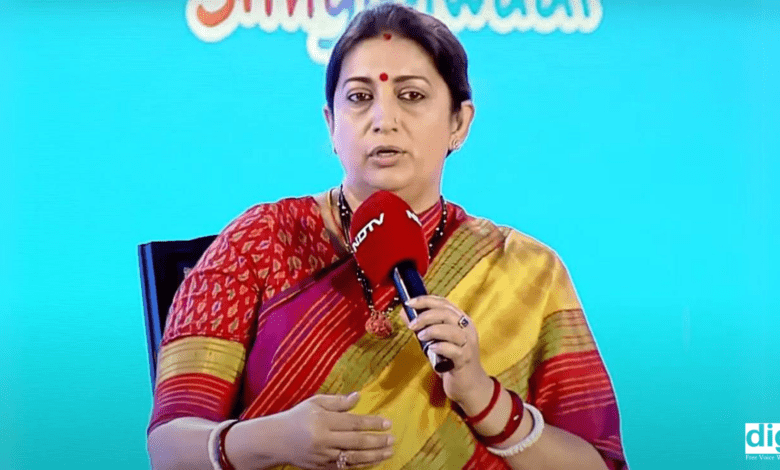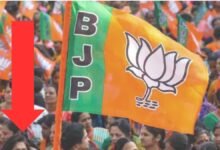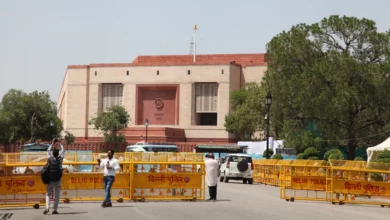‘Engendered’ or ‘Endangered’: Will a provision for ‘Paid Menstrual Leaves’ do more harm than good for women?
Since the dawn of the Industrial Revolution, women's rights activists have been voicing their demands for 'paid menstrual leaves.' Still, not all women are backing their cause.

We all know how half of the world’s demography suffers gravely during the most productive phase of their lives owing to menstruation. From household chores to jobs, women have always been expected to work incessantly, irrespective of whether they suffer from periods or not. Thus, since the dawn of the Industrial Revolution, women’s rights activists have been voicing their demands for ‘paid menstrual leaves.’
“In man, the shedding of blood is always associated with injury, disease, or death. Only the female half of humanity is expected to have the magical ability to bleed profusely and rise like a phoenix — each month from the gore.” These were the profound words of one of the pioneers of modern-day feminism, Estelle R. Ramey.
As a Layman, you would presume that all women unequivocally support the demand for ‘paid menstrual leaves,’ right? Here is a twist — Not all women (even some feminists) support the concept of ‘paid menstrual leaves!’
Recently, while replying to Rashtriya Janata Dal (RJD) MP Manoj Kumar Jha’s query on whether the Modi government has been working on a uniform menstrual leave policy, Union Minister for Women and Child Development Smriti Irani maintained that ‘menstruation’ is NOT a ‘handicap.’
Elaborating further from her observation, Irani observed that ‘paid menstrual leaves’ were redundant for most women as the act of menstruating is a natural part of their lives, and employers had no right to know about their employee’s menstrual cycles. She feared that a forceful provision for ‘menstruation leaves’ could invigorate the stigma surrounding periods and do more harm by threatening women’s empowerment opportunities by fuelling gender-based discrimination.
What is ‘menstruation’ and what are its effects?
A menstrual cycle inside a woman’s body lays the rudimentary foundation for reproduction. Let me take you back to “Class 8 Biology.” A menstrual cycle is a month-long event that prepares the uterus for — the development and nurturing of eggs, release for fertilisation and post-fertilisation preparation.
Almost every woman aged between 13 and 45 (age) undergo the menstrual cycle, which lasts from 23 to 34 days. Here, the uterine walls thicken with a lining of blood that exists to cushion and harbour a fertilised ovum. However, if the egg does not get fertilised (no conceiving), the blood lining exits the body through ‘inner-vaginal bleeding.’ During this stage of the cycle (which lasts from 3 to 7 days), the concerned woman suffers a range of physical discomforts and hormone-induced mood swings.
Abdominal cramps, breast pain, heavy bleeding, lack of concentration, mood swings, and bloating are the most common discomforts associated with periods. For some, such is the extent of period-induced discomfort that they take the day off from their school or office to recover. However, the pain or discomfort caused by periods cannot be generalised.
Menstruation feels and impacts differently for different females.
Gynaecologist and women’s health activist Doctor Surbhi Singh opines menstruation can bring forth different degrees of discomfort for different women. In severe cases, menstrual cramps can get so excruciating that a woman may need hospitalisation. Such women may experience a severe form of PMS (Pre-menstrual Syndrome) called PMDD (Pre-menstrual Dysphoric Disorder), where period-induced mood swings could even lead to suicidal thoughts!
However, in other cases, a woman does not face much difficulty and can do her job with slight medication and rest. An ethical quandary now arises — Do all women deserve similar (uniform) menstrual leaves? The answer does not exist.
The research by the British Medical Journal finds that a woman loses 8.9 days of productivity each year due to her periods. If employers grant paid leaves to their female employees during their periods — the male employees need to be overworked and over-utilised to maintain the standard level of productivity (without an increased payment). How ethical will that be?
Hence, many women’s rights activists argue that standardisation of ‘paid menstrual leaves’ shall eventually disincentivise an employer from employing female workers for economic reasons and fear of ‘absenteeism.’ Not to mention how an unsolicited imposition of ‘paid menstrual leaves’ could fortify the stigma around women’s health and periods and give way to further discrimination.
Is there a middle ground?
Yes, a middle ground exists in this case. Reiterating Union Minister Smriti Irani’s claim, many gynaecologists and women’s rights activists opine that labelling ‘periods’ as ‘handicap’ could backfire severely. If a woman needs a period leave (depending on the ‘subjective’ degree of discomfort she feels), the employer should grant her one by extending her ‘sick leaves.’
Instead of merely making provisions for ‘menstrual leaves,’ the government should force office institutions and school authorities to supply decent infrastructural facilities to cater to menstruating females. Sex education and literacy regarding women’s health are the keys to breaking the stigma surrounding ‘periods’ and evoke much-needed sympathy to the women facing discomfort.
In 1992, under Lalu Yadav’s chief ministership, Bihar became India’s first state to adopt a state menstrual policy in schools. The Pinarayi Vijayan government in Kerala introduced a policy that reduced the minimum compulsory attendance requirement from 75% to 73% for female students in Kerala’s higher education institutions.
At this juncture, it is rather difficult to determine whether ‘paid menstrual leaves’ must be compulsorily given to women employees — but the necessity of breaking free of gender prejudice and promulgating sex education is the need of the hour. Trivialising the struggles of women by ignoring and undermining the concept of periods can no longer be acceptable.







